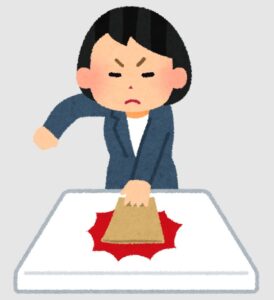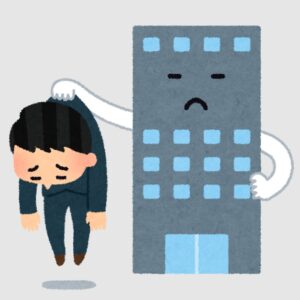管理人オススメコンテンツはこちら
「損をしたまま挽回できない世代|年功序列の崩壊で人生設計が破綻する」
〜前回のつづき〜
●年功序列が崩壊中の日本で30代が大損する2つの理由(つづき)
理由(2)歳を取ったら年功序列というのは崩壊済みになる
だから上乗せの給料はもらえない。
今まで通りに
年功序列というのが
続いていくのであれば
若いうちに
安く抑えられた給料というのは
歳を取ってから
取り返す事が出来る訳ですね。
どこかのタイミングで
今の働きよりも
今の給料の方が多くなる。
例えば
500万円分の働きしかしてないけど
1千万円貰える人って
いるじゃないですか。
年功序列という制度は
そういう時期がいつか来て
一生を通して見た場合に
・今までの働き
・今までの給料
の辻褄(つじつま)が合ってくる。
大体同じぐらいになってくる
という事なんですね。
ですけど
年功序列というのは
今まさに崩壊の真っ最中で
「年功序列は終わったので
成果主義になります!」
となったとするじゃないですか。
そうすると
「今の働きは500万円分なんだけど
給料1千万円上げるね
なんて事は認められません!」
という事になるんですよね。
なので今後ずっと
成果報酬ですね。
今の働き=今の給料というのが
続いてしまって
若い時に
安く抑えられてしまってた給料を
取り返す機会というのが
人生の中で
二度とやってこない訳ですね。
なので全体として
今までの働きの方が
今までもらった給料よりも多い
という事になってしまうわけですね。
一方で
最初から成果主義の世界を生きていく
20代前半の世代というのは
これは辻褄が合う訳ですよ。
若いうちは今の働き
500万円分の働きをしたら
給料が500万円になるはずだし
歳を取っても
1千万円の働きをしたのであれば
1千万円
300万円の働きなのであれば
300万円という
今の給料と今の働きが
ほぼ一緒になってくるはずなので
人生全体としても
今までの働きと
今までの給料というのが
一緒になってくるので
これは何の問題も無いんですよね。
ずっと
年功序列の世界を生きていく
40〜50代の世代も
これは若いうちは
今の働きの方が
今の給料よりも多い。
今1千万円分の
働きをしてるんだけど
今の給料は500万円。
今は損してる。
若いうちは損をしている。
でも歳を取ったら
その逆の事が起きる。
あまり働けなくなるし
500万円分の働きしかしてないけど
1千万円もらえる。
なので全体としては
今までの働きと
今までの給料が合ってくるから
結局問題無しという事に
なるんですけど
間に挟まれた30代というのは
若いうちは今の働きの方が
今の給料よりも多い訳なんですよね。
歳を取ったら
今の働きと今の給料が
一緒になっちゃう。
あまり働けなくなったら
それなりの給料しかもらえない。
だから全体として
結局今まで働いた分の方が
今まで働いた給料よりも多い
という事になってしまうという事で
今の30代がどう考えても損だ
という事になってくるんですね。
年功序列が崩れる過渡期にいる30代だけは
損をしたまま挽回できない世代と
なってしまっている訳です。
〜〜〜つづく〜〜〜
Special Thanks college president Ryo.
●おまけ
≪≪perplexityちゃんによる文章まとめ≫≫
日本の年功序列制度が崩壊しつつある現在、30代が最も損をする世代となっています。
従来の年功序列では、若い時に安い給料でも、年齢を重ねれば高い給料で取り返すことができました。
しかし、今は成果主義へと移行しており、年齢による給料の上乗せがなくなっています。
そのため、30代は若い時に抑えられていた給料を、将来取り戻す機会がありません。
一方、最初から成果主義の20代や、年功序列が続いた40〜50代は、働きと給料のバランスが取れますが、過渡期にあたる30代だけが「働いた分よりも給料が少ない」という損な立場になっています。
Citations:
[1] https://seikatsusoken.jp/miraihaku2025/part1/
[2] https://career-research.mynavi.jp/column/20220128_22286/
[3] https://moneycanvas.bk.mufg.jp/know/column/WMIzbiThAmp6ViM/
[4] https://www.ben54.jp/news/2280
[5] https://www.manpowergroup.jp/client/manpowerclip/hrconsulting/seniority.html
[6] https://www.sadatari.com/2025/02/10/年功序列賃金は2030年になくなる?/
[7] https://edenred.jp/article/hr-recruiting/202/
[8] https://www.nikkei.com/article/DGXZQOUB097760Z00C25A5000000/
≪≪Chat-GPTくんによる英訳≫≫
~Continuing from the previous part~
【Two reasons why people in their 30s are at a major disadvantage in Japan as the seniority-based pay system collapses (continued)】
Reason (2): The seniority-based system is already broken by the time you get older
So, you no longer receive the salary boost that would have come with age.
If the traditional seniority-based pay system were still in place,
you could make up for the lower wages you received when you were young
by earning more as you aged.
At some point, your salary would exceed the value of your actual work.
For example,
there are people who only contribute work worth 5 million yen
but receive a salary of 10 million yen.
The seniority-based system was built with the assumption
that such a phase would eventually come,
and when looking at your entire career,
your total work and total salary
would balance out in the long run.
In other words, things would even out over time.
However, the seniority-based pay system
is currently in the process of collapsing.
Let’s say the system officially changes:
“Seniority-based pay is over — now it’s merit-based!”
In that case,
“Even if your work is worth only 5 million yen,
we’ll give you 10 million yen anyway”
— that kind of thing would no longer be allowed.
From then on, it will be entirely performance-based.
That means your current work = current pay will become the norm.
And the opportunity to make up for
your low pay when you were younger
will never come in your lifetime.
So, in the end,
your total contribution over the years
will be greater than the total pay you’ve received.
On the other hand,
for people in their early 20s who are starting their careers
under a fully merit-based system,
things do balance out.
If you do 5 million yen worth of work when you’re young,
you’ll earn 5 million yen.
If you do 10 million yen worth of work as you get older,
you’ll get 10 million yen.
And if you only contribute 3 million yen’s worth of work,
you’ll only get paid 3 million yen.
So, your current salary and current output
will always be in sync.
Over the course of your life,
your total work and total earnings
will be about equal — no problem there.
Even for those in their 40s and 50s who lived
entirely under the seniority-based system:
when they were young,
their work output exceeded their salary.
Maybe they contributed work worth 10 million yen,
but only received 5 million yen.
So yes, they were losing out when they were young.
But as they aged, the situation reversed:
they contributed less — say, 5 million yen worth of work —
but were paid 10 million yen.
Therefore, when looking at their whole career,
work and pay still balance out.
So, no real issue for them.
However, those in their 30s, caught in the middle,
had their early-career salaries suppressed
under the old seniority system.
But now that they’re older,
they’re stuck with merit-based pay —
meaning their current work = current salary.
If they contribute less due to aging,
they’ll only receive a correspondingly lower salary.
So, over their lifetime,
their total work will end up
exceeding their total earnings.
This is why people in their 30s today
are clearly at a disadvantage.
Special Thanks OpenAI and Perplexity AI, Inc








